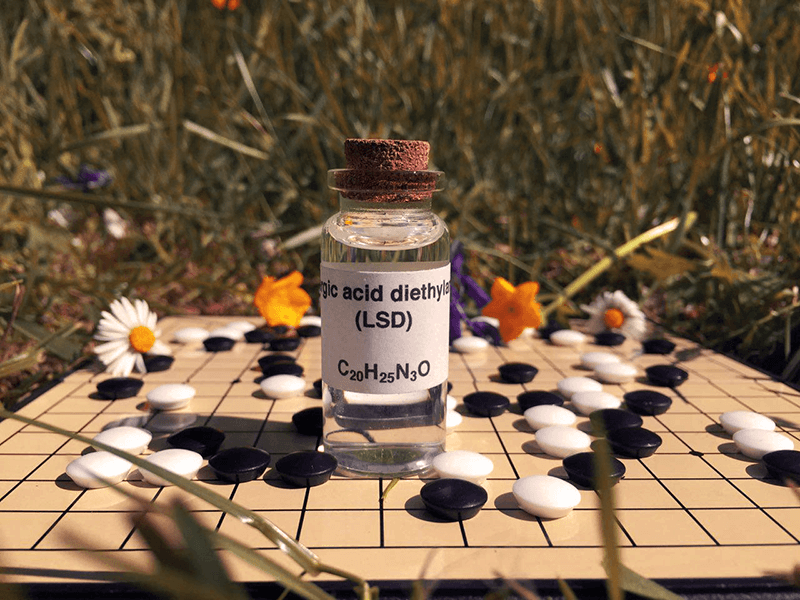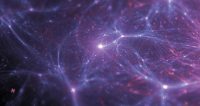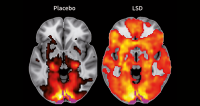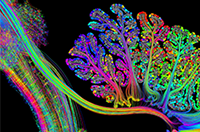
Help Us Carry Out the World’s First Scientific Study on LSD Microdosing

Study participants will play the ancient Chinese game of Go in order to determine how microdosing affects creativity
For years, the world has been crying out for a proper scientific study to validate the thousands of anecdotal reports about the benefits of microdosing with LSD. Said to boost cognition, enhance mood, alleviate depression and increase creativity, microdosing is one of the most under-researched areas of not just psychedelic science, but mental health in general.
Realising one of her longest held ambitions, Amanda Feilding has now put together a highly original protocol for a study which will not only categorise the effects of microdosing, but will also illuminate the neurological mechanisms behind these effects.
Set to be carried out as part of the Beckley/Imperial Research Programme, the study is being made possible thanks to a crowdfunding campaign launched by Fundamental.
With one in four Americans suffering from some form of mental health disorder, and governments and pharmaceutical companies reluctant to finance research into the therapeutic capacity of psychedelics, this campaign aims to mobilise the public to fund a mental health revolution.
Hoping to raise a total of $2million, Fundamental will use the proceeds to support four separate studies into the benefits of psychedelic compounds, with a view to making them medically available.
These include studies on psilocybin as a treatment for both end-of-life anxiety and alcoholism at New York University, and a clinical trial of MDMA for post-traumatic stress disorder, led by the Multidisciplinary Association for Psychedelic Studies (MAPS).
Our microdosing project will see 20 participants given either 10, 20 or 50 micrograms of LSD, or a placebo, before undergoing a series of tests, questionnaires and brain scans. This will enable us to determine how microdosing affects physiological, psychological and cognitive processes while also indicating the corresponding changes in neural activity.
In a revolutionary twist, participants will also play the ancient Chinese strategy game of Go against an AI system in order to determine whether microdosing improves their intuitive pattern recognition and creative performance.
“What I noticed from the days when I was a passionate Go player, and before LSD was made illegal, was that if I was on LSD and my opponent wasn’t, I won more games,” says Amanda Feilding. “I think what it does is increase intuitive pattern recognition which in a way is the basis for creative thinking, and I think playing Go tests for that fluidity of thinking, in a way that standard cognitive tests don’t.”
Last year, the Beckley/Imperial Research Programme published the world’s first images of the brain on LSD, revealing how the drug generates an increase in communication between regions of the brain that don’t normally communicate, resulting in a more integrated and fluid brain state.
We will soon know if the same changes in brain activity are produced by microdosing, and whether or not these are responsible for the increase in creativity and reduction in depression that the practice is claimed to bring about.
To join this revolution in mental healthcare and help change the course of psychedelic research, donate to our crowdfunding campaign here.
Podcast
- All
Links
- All
Support
- All
BIPRP
- All
Science Talk
- All
Amanda's Talks
- All
- Video Talk
- Featured
- 2016 Onwards
- 2011-2015
- 2010 and Earlier
- Science Talk
- Policy Talk
One-pager
- All
Music
- All
Amanda Feilding
- All
Events
- All
Highlights
- All
Psilocybin for Depression
- All
Current
- All
Category
- All
- Science
- Policy
- Culture
Substance/Method
- All
- Opiates
- Novel Psychoactive Substances
- Meditation
- Trepanation
- LSD
- Psilocybin
- Cannabis/cannabinoids
- Ayahuasca/DMT
- Coca/Cocaine
- MDMA
Collaboration
- All
- Beckley/Brazil Research Programme
- Beckley/Maastricht Research Programme
- Exeter University
- ICEERS
- Beckley/Sant Pau Research Programme
- University College London
- New York University
- Cardiff University
- Madrid Computense University
- Ethnobotanicals Research Programme
- Freiburg University
- Medical Office for Psychiatry and Psychotherapy, Solothurn
- Beckley/Sechenov Institute Research programme
- Hannover Medical School
- Beckley/Imperial Research Programme
- King's College London
- Johns Hopkins University
Clinical Application
- All
- Depression
- Addictions
- Anxiety
- Psychosis
- PTSD
- Cancer
- Cluster Headaches
Policy Focus
- All
- Policy Reports
- Advisory Work
- Seminar Series
- Advocacy/Campaigns
Type of publication
- All
- Original research
- Report
- Review
- Opinion/Correspondence
- Book
- Book chapter
- Conference abstract
- Petition/campaign
Search type



